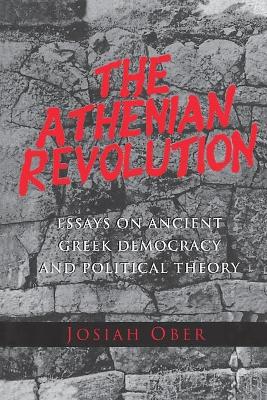Where did "democracy" come from, and what was its original form and meaning? Here Josiah Ober shows that this "power of the people" crystallized in a revolutionary uprising by the ordinary citizens of Athens in 508-507 B.C. He then examines the consequences of the development of direct democracy for upper-and lower-class citizens, for dissident Athenian intellectuals, and for those who were denied citizenship under the new regime (women, slaves, resident foreigners), as well as for the general development of Greek history. When the citizens suddenly took power into their own hands, they changed the cultural and social landscape of Greece, thereby helping to inaugurate the Classical Era. Democracy led to fundamental adjustments in the basic structures of Athenian society, altered the forms and direction of political thinking, and sparked a series of dramatic reorientations in international relations. It quickly made Athens into the most powerful Greek city-state, but it also fatally undermined the traditional Greek rules of warfare.
It stimulated the development of the Western tradition of political theorizing and encouraged a new conception of justice that has striking parallels to contemporary theories of rights. But Athenians never embraced the notions of inherency and inalienability that have placed the concept of rights at the center of modern political thought. Thus the play of power that constituted life in democratic Athens is revealed as at once strangely familiar and desperately foreign, and the values sustaining the Athenian political community as simultaneously admirable and terrifying.
- ISBN10 0691001901
- ISBN13 9780691001906
- Publish Date 3 January 1999 (first published 15 December 1996)
- Publish Status Active
- Publish Country US
- Imprint Princeton University Press
- Format Paperback (US Trade)
- Pages 224
- Language English
- URL https://press.princeton.edu/titles/5935.html
